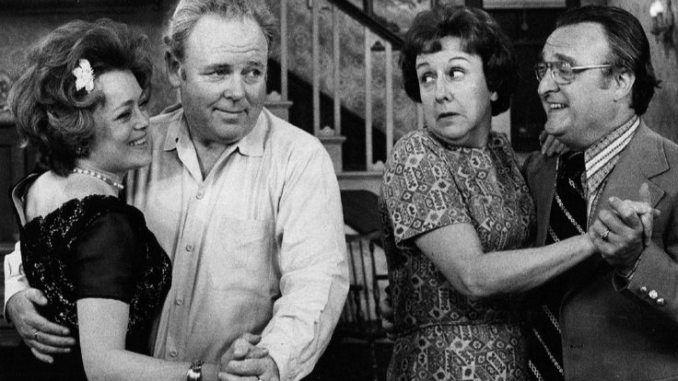
More than four decades after its original broadcast, All in the Family continues to stir public conversation. A recently resurfaced scene from the 1970s sitcom has reignited debate about the show’s handling of race, gender, and social issues—drawing both praise for its boldness and criticism for its perceived insensitivity.
The controversial moment in question comes from the 1972 episode titled “The Elevator Story.” In the episode, Archie Bunker, played by Carroll O’Connor, finds himself trapped in an elevator with a diverse group of passengers, including a Black man and a visibly pregnant woman. In true Archie fashion, he unleashes a series of bigoted remarks that are both shocking and—according to some—still uncomfortably relevant today.
For decades, fans and critics have debated whether the character of Archie Bunker was a satirical mirror of American prejudice or an accidental reinforcement of harmful stereotypes. Norman Lear, the show’s legendary creator, has long maintained that Archie was designed to expose ignorance, not endorse it. But audiences remain split.
What makes this particular scene newly controversial is its reappearance on social media platforms like TikTok and X (formerly Twitter), where younger generations—unfamiliar with the context of 1970s television—are viewing the clip in isolation. Many users have voiced outrage, calling the dialogue “unacceptable” and “offensive.” Others argue the show deserves credit for confronting taboo topics head-on during a conservative era.
Television historian Mark Whitman explains, “All in the Family was never meant to make people comfortable. It was designed to provoke reflection, and sometimes, that means upsetting people. What we’re seeing now is a generational shift in how satire is interpreted.”
The show’s legacy remains complex. It was groundbreaking in its time, winning multiple Emmy Awards and topping ratings charts. Yet moments like this remind viewers that the line between satire and offense is often thin—and constantly shifting.
As debates continue online and in classrooms, one thing is clear: All in the Family is more than just a sitcom. It’s a cultural time capsule that still challenges America to confront its contradictions.
Post Views: 53
